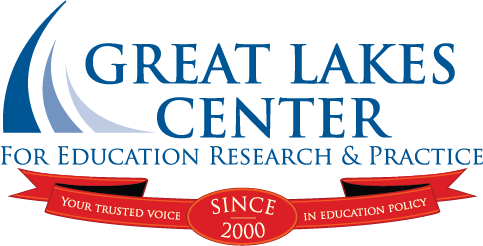
Think Twice Weekly Report
JULY 8, 2023 - JuLY 14, 2023
The Think Twice Weekly Report compiles public education-related policy reports, research and articles of interest to policymakers, educators and stakeholders. This list is not exhaustive but is meant to highlight recent reports that may be used to support or undermine the work of our subscribers in supporting public schools. We encourage you to take a moment to scan these reports and determine if they may be used by policy makers to assist or erode your mission.
 Policy Reports
Policy Reports
School Finance and Funding
Source: Fordham Institute
Date: 7/11/2023
Think Again: Is education funding in America still unequal?
Historically, many American students from poor families have been trapped in sorely underfunded public schools. The conventional wisdom suggests that school funding remains unequal across low- and high-income schools and that equal funding equates to equitable resources for students. This brief challenges the notion that economically disadvantaged students receive less funding than other students, with implications for equalizing classroom resources and optimizing other social policies.
 Reports Reviewed
Reports Reviewed
GLC seeks to ensure that policy briefs impacting education reform are based on sound, credible academic research. Below are reviews conducted with GLC support.
Think Again: Do Charter Schools Drain Resources From Traditional Public Schools?
Source: Thomas B. Fordham Institute
Reviewed by: Huriya Jabbar, University of Texas at Austin
The report references most of the relevant literature and fairly assesses the evidence. However, it makes claims and policy recommendations that are untested empirically and unwarranted based on the research. For example, it concludes that districts' higher expenditures in a charter environment are due to policies protecting traditional public schools from revenue fluctuations caused by charter competition. In doing so, it fails to consider other possible explanations, such as charters strategically enrolling relatively few students who are particularly costly to educate.
 What We're Reading
What We're Reading
Research and articles that we want to highlight for subscribers as potential resources:
DeSantis Vows to Eliminate Department of Education or Use It to Wage War on Woke
By: Adrienne Mahsa Varkiani, The New Republic
DeSantis has been using Florida as his own personal laboratory, testing all manner of extreme policies targeting the most marginalized in his state. And now he’s making it clear: If he becomes president, he’ll take his fanatical vision nationwide.
Here’s what schools should know about the growing CROWN Act
By: Anna Merod, K-12 Dive
Now in 23 states, the movement aims to prohibit school grooming or dress policies that discriminate based on hair texture and type.
Gen Z values education - but doesn’t think a 4-year degree is the only option
By: Laura Spitalniak, K-12 Dive
The current cohort of high school students, part of Generation Z, values postsecondary education but is increasingly interested in alternatives to four-year colleges, according to a new report from ECMC Group, a nonprofit focused on student success, and Vice Media.
Funding Community Schools in California
By: Dion Burns Michael Griffith Anna Maier, Learning Policy Institute
In the past 2 years, California has made significant investments to support the expansion of community schools statewide, including $4.1 billion to establish the California Community Schools Partnership Grant Program. In addition to leveraging new state funds, sustainably financing a community schools strategy may also involve blending and braiding local, state, and federal funding sources. This brief provides an overview of some state and federal funding sources that may be used to support a community schools approach in California.
Fostering Belonging, Transforming Schools: The Impact of Restorative Practices
By: Sean Darling-Hammond, Learning Policy Institute
Because [restorative] practices address root causes of student misbehavior while reducing exclusionary approaches, they have the potential to ameliorate racial disparities while enhancing school climates, academic engagement, and academic performance.
